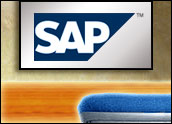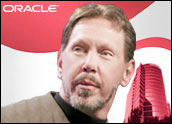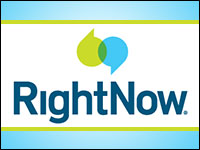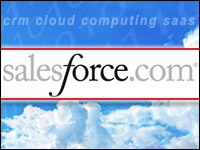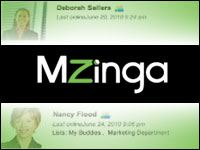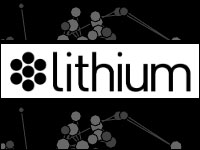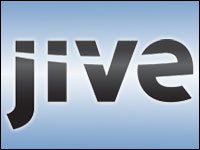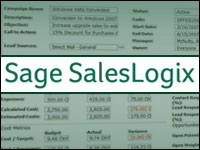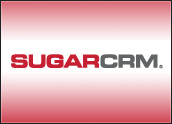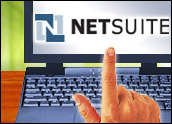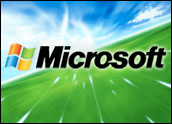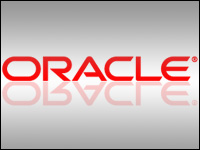
Oracle offers the industry’s widest and deepest range of sales force automation functionality as either an on-premise product or a cloud solution — or a hybrid of the two, according to Anthony Lye, senior vice president of Oracle CRM.
Siebel CRM is a leading CRM suite used by thousands of organizations to drive their sales success, he told CRM Buyer.
Oracle integrated the capabilities of several CRM product lines, including Siebel, PeopleSoft CRM, and JD Edwards CRM, Ray Wang, principal analyst at Constellation Research Group, told CRM Buyer.
Now, 95 percent of Oracle sales are Siebel CRM, he estimated, and most customers want the on-demand solution.
“That’s probably the most comprehensive, complete CRM product in the marketplace,” Wang said.
With Siebel CRM, Oracle can support the lead-to-cash process across many industries, Lye explained.
With Oracle CRM On Demand, the company’s comprehensive cloud-based CRM solution, Oracle provides unparalleled ease of use and rapid time to value for both sales executives and sales teams, he added.
Every Human Process
Oracle’s CRM solutions are designed to increase sales productivity and results, Lye noted. They support and drive activities throughout the entire sales cycle with functionality available in a traditional browser, a smartphone or tablet.
“Oracle’s CRM solutions also provide sales planning and management, including territory management, quota management, and rich analytics to track against targets,” Lye said. “In essence, we include any and every human process that a sales organization can automate and improve upon, in order to increase deal size, win rates, pipeline velocity and overall sales team effectiveness.”
Range of User Interface Options
A key feature for sales professionals is integration with contact information — and, increasingly, mobility, Wang pointed out.
“It’s really about access to information,” he said.
Easy access to information is particularly important when sales representatives are on the road, and Oracle’s complexity might make it a little more difficult to use to use than other solutions, Wang cautioned.
However, Oracle’s wide-range of user interface options streamline ease of use, Lye pointed out, emphasizing that Oracle CRM On Demand was designed with ease of use in mind and is easily extensible as is Siebel CRM.
“For example, Siebel CRM offers a CRM Desktop option that enables sales teams to seamlessly leverage Microsoft’s familiar Outlook UI to perform many of the functions you’d expect in a Web application — such as the ability to view and update contacts, accounts, leads and opportunities,” Lye explained.
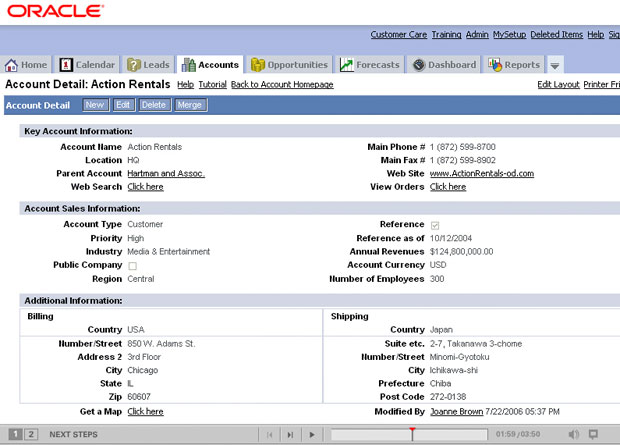
“Given that field reps and sales managers spend most of their time on the road, yet want to access their key sales information, we now provide focused and intuitive apps built specifically for smartphones such as the iPhone and BlackBerry,” he said.
“They’re doing some other things too with the mobile devices,” Brent Leary, cofounder of CRM Essentials, told CRM Buyer, pointing out that Oracle created a special application for pharmaceutical sales representatives.
” Oracle is unique in offering a disconnected portable selling solution for pharmaceutical reps that enables them to deliver rich, graphical presentations and capture prescription orders and signatures on-the-go from time-pressured physicians,” Lye elaborated.
Deep Analytical Capabilities
Oracle’s CRM product line delivers deep analytical capabilities, including out-of-the-box dashboards, as well as the ability to create custom analytic reports and dashboards, Lye said.
This gives sales executives, regional managers and sales reps the ability to analyze their best opportunities and top-selling products, identify areas for improvement, and perform trend analyses, he explained.
It is important to provide the sales manager with good information because the manager needs to know what sales is doing in order to help make sales effective, Wang said.
Both Breadth and Scale
Oracle targets dozens of markets, including financial services, communications, media and entertainment, life sciences, high tech and industrial manufacturing, Lye noted.
Typical customers for Oracle’s sales automation solutions are companies with more than US$100 million in revenue that leverage direct and indirect sales channels. Oracle works with companies on the lower end of this revenue scale as well as departments or divisions of larger companies, he continued.
“Our solutions are unique in providing both the breadth and scale to meet these requirements,” Lye pointed out.
Many Pricing Options
One limitation for some businesses considering Oracle’s products might be price, Wang cautioned, noting that as a leading product, it could be prohibitively expensive.
Oracle tries to offer customers a wide range of pricing options, Lye said, including both packaged, licensed sales automation products priced on a per-user basis, and subscription-based cloud/SaaS offerings priced per user, per month. Oracle can also manage and host its on-premises CRM solution for customers and provide multitenancy options with the cloud CRM offering.
“In essence, we provide a high degree of flexibility,” Lye concluded.
Making an Impression
Capturing the attention of customers is a growing challenge for sales professionals, Leary pointed out, because there is less time to make an impression.
“It’s just getting harder and harder,” he said. “Getting people’s attention is just getting tough.”
Oracle’s CRM Sales Library On Demand is a feature that can help sales teams find content to create presentations and collateral, Leary said. The content can be reused and repurposed to better target prospects.
With the Sales Library, he explained, sales professionals can leverage social media information to help draw attention in the sales process.

